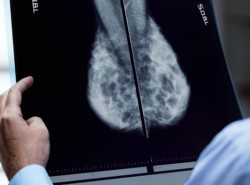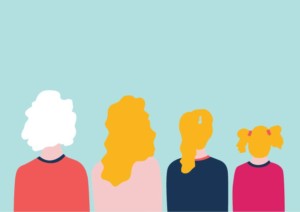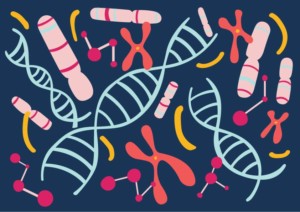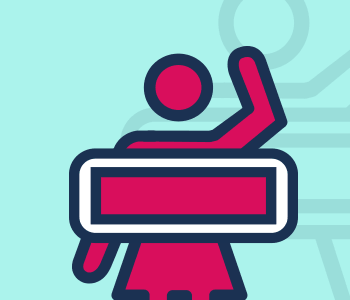
FAMILIAL BREAST CANCER
What is a family history of breast cancer?
A family history of breast cancer means having a first-degree relative who had or has a diagnosis of breast cancer. The relative can be from the father’s or mother’s side of the family.
Since breast cancer is the most commonly diagnosed cancer in Australia, many women will have a family history by chance. However, sometimes there is a specific genetic variation (or mutation in a gene), that is inherited from one parent that increases the risk of breast cancer. Only about 5-10% of breast cancer cases can be explained by an inherited mutation. There are some factors that may indicate an inherited mutation, for example in families where there are multiple first-degree relatives who have been diagnosed with breast cancer. Familial breast cancer is the term used to describe families with a cluster of breast cancer diagnoses.

Faulty genes linked to increased breast cancer risk
Rarely, faulty (or mutated) genes can be inherited (passed from parent to child). Mutations in the BRCA1 and BRCA2 genes are well-known to be linked to an increased breast cancer risk. However, there may be other genes, or certain combinations of genes, which may increase breast cancer risk when mutated.
We Need Your Help – Support Research on Blood Tests For Detection of Cancer DNA
Problem: There is a compelling need to develop new non-invasive technologies to detect breast cancer metastases and therefore identify disease recurrence earlier. While most patients respond well to the initial chemotherapy, the disease will return in approximately 15% of patients after primary treatment. Currently there are no sensitive and reliable tests to monitor these patients and detect breast cancer relapse earlier.
Goal: The study is aiming to develop a new test to detect cancer cell DNA in the blood of breast cancer patients, which will identify disease recurrence earlier.
DONATE NOW TO HELP FUND THIS RESEARCH
BRCA1 and BRCA2 genes
Mutations in the BRCA1 and BRCA2 genes are associated with an increased risk of breast and ovarian cancer. BRCA1 and BRCA2 mutations are considered rare to very rare. About 1 in 400 to 1 in 800 people have a BRCA1 or BRCA2 gene . However, the frequency of BRCA1 and BRCA2 mutations is higher among certain ethnic groups. For example, in Australia about 2.5% of the Ashkenazi Jewish population carry mutations in the BRCA1 and BRCA2 genes compared to less than 1% in the general population. The gene mutations can be passed on both the mother and father’s side of the family.
Over her lifetime, a woman who carries a mutation in one of these genes has about 70% chance of developing breast cancer. However, not everyone who has a faulty BRCA1 or BRCA2 gene will develop cancer. Only about 5-10% of female breast cancers can be explained by inherited mutations.

What can you do? Managing your breast cancer risk
- Being breast aware. Women of all ages are encouraged to be aware of how their breasts normally look and feel. If you notice any new or unusual changes, please contact your doctor without delay.
- Participating in breast cancer screening. Free routine mammographic screening is available in each state for women aged 50-74 through BreastScreen Australia. Women aged 40-49, or over 75, are also entitled to a free mammogram, however, they receive no reminder prompts, like women aged 50-74 do. Book online or contact BreastScreen Australia on 13 20 50.
- If you have family history or you are concerned that you may have an increased risk of breast cancer, talk to your GP or local family cancer clinic,. Your doctor can help you assess your risk and refer you for additional genetic testing if required.

iPREVENT
To help all Australians to know and manage their personal breast cancer risk, NBCF has funded the innovative work of Professor Kelly-Anne Phillips. Her development of web-based tool, iPrevent, was designed help all Australian women to estimate their risk of developing breast cancer so they can take appropriate action. This tool will also help to determine the significance of your family history, amongst other risk factors, to your breast cancer risk.
Support services
If you or your loved one is affected by cancer, Cancer Council and Breast Cancer Network Australia have further resources to provide emotional and practical support. Cancer Australia also has further information on managing the physical and emotional changes following cancer, and finding support for those impacted by cancer.
Research into familial breast cancer
NBCF supports a wide spectrum of research, including research to understand, manage and prevent familial breast cancer in men, women and their families. Learn more about our funded researchers and their projects related to familial breast cancer below.
Hear from Associate Professor Peter Simpson on research into familial breast cancer
Around 5-10% of breast cancer cases can be caused by an inherited gene mutation such as mutations that occur in the breast cancer type susceptibility genes BRCA1 and BRCA2. See above for more information.
A consult at a family cancer clinic is free of charge and here you will be advised on whether genetic testing is needed to manage your breast cancer risk. Genetic testing is free for candidates who meet the family history criteria, however, there may be out of pocket costs for those who choose to get a genetic test but don’t qualify through the criteria.
Genetic testing is only suitable for a small number of individuals referred to family cancer clinics. Eligibility for testing is based on family history and other criteria and is assessed independently for each family. If you are concerned about your breast cancer risk, it is advised you go to a family cancer clinic to find out more information.
HER2 breast cancer is not a hereditary disease. If a close relative of yours is diagnosed with HER2 positive breast cancer, this does not mean your risk of developing breast cancer increases.